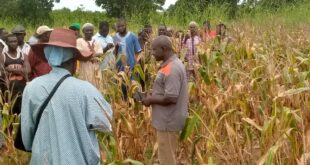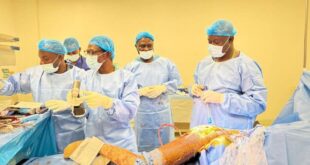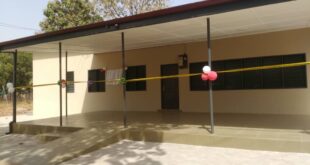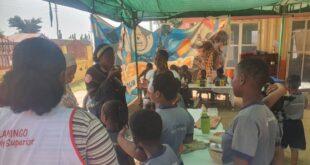
Tamale, Ghana – A Senior Lecturer at the University for Development Studies (UDS), Michael Ayamga, has recommended the siting of basic amenities closer to communities as a step geared towards reducing the burden of unpaid care work.
According to him, siting of basic amenities such as potable water sources, schools, hospitals and markets far away from communities, further increases burden of unpaid care work.
Speaking at a stakeholders meeting organised by ActionAid-Ghana International in Tamale to mark International Women’s Day, Dr Ayamga observed that the lack of basic amenities in rural communities also made it impossible for majority of women to engage in economic and other social activities that would advance their progress in life.
“Lack of water sources increase the burden of unpaid care work…. women spend several hours, walk long distances to fetch water. If you want to reduce unpaid care work it means that you have to invest in water harvesting systems and community water systems so that it reduce the labour burden of fetching water…”, he told Savannahnew in an interview.

Taking care of the house as well as child bearing is considered the preserve of women in Ghana. However, these duties mostly go unpaid for, thus leaving majority of women constantly stuck in poverty.
Thus, unpaid care work refers to the services that women provide in their homes and communities including preparing food, collecting firewood and water, and taking care of children, the sick and aged among others.
A report by ActionAid-Ghana International estimates that if unpaid care work were assigned a monetary value, it would constitute between ten and twenty percent of Ghana’s gross domestic product. But sadly, unpaid care work is generally unrecognised and undervalued by policy-makers and the legislature according to the report.
Dr Ayamga explained that, women spend an average of 10hours of their working day doing unpaid care work and it was a critical development issue especially when women constituted about 51 percent of the country’s population.

He pointed out that, women were poor because they did not have enough time to engage in income earning ventures, promote their development and leadership potentials. “So what we need to do to address the issue of unpaid care work is to consider the distribution of and redistribution of unpaid care work among family members such as wife, husband, aunties and uncles….”, Dr Ayamga opined.
A Project Officer of ActionAid-Ghana International, Safura Abdallah, told Savannahnews there was steady improvement in the issue of unpaid care work in some of Actionaid’s project communities.
She said many people did not consider the issue of unpaid care work as a serious problem or priority even though it hindered the development of women, and urged stakeholders to come on board to push for a paradigm shift in the ways house chores were distributed in many Ghanaian homes.
Madam Safura was however hopeful that participants of the meeting would continue with the advocacy at their work places by adopting measures that would help reduce the burden of unpaid care work on women.
Meanwhile, International Women’s Day, usually celebrated on March 8, is a day set aside to celebrate the social, economic, cultural and political achievements of women all over the world. The theme for the 2018 IWD is “#Pressing for Progress” – a push for gender equality worldwide.
By Savannahnews
 Savannah News Online Reporting Only What Matters Most
Savannah News Online Reporting Only What Matters Most



